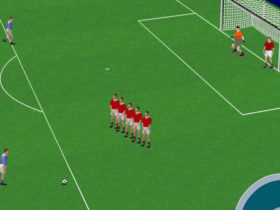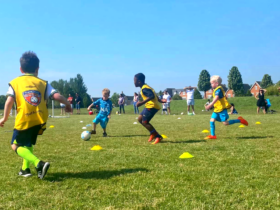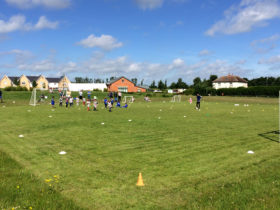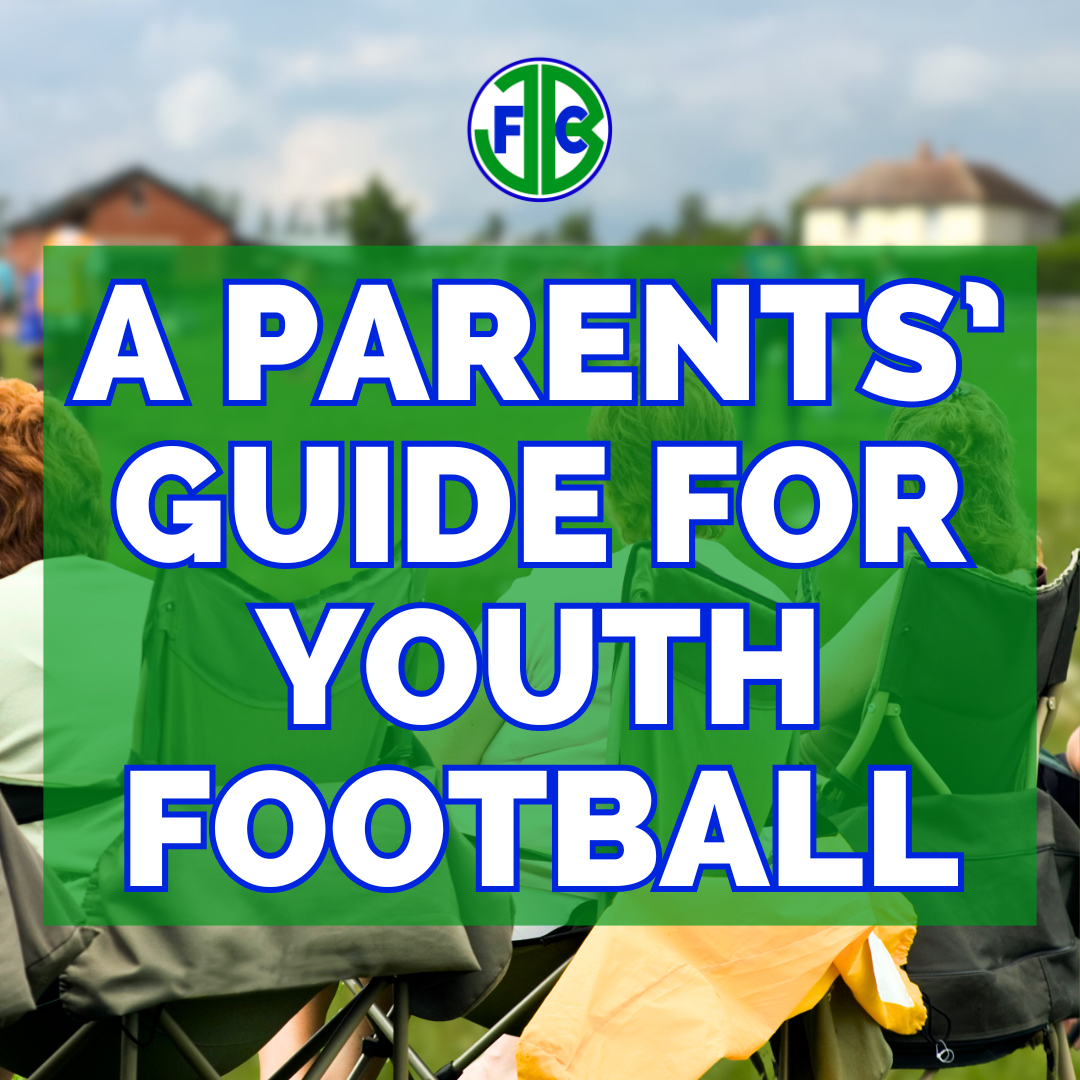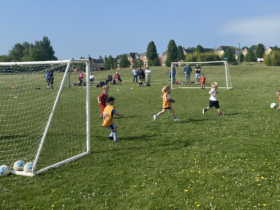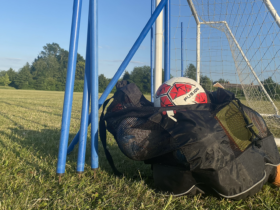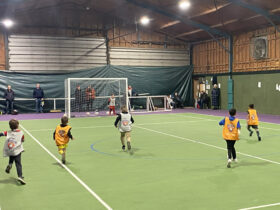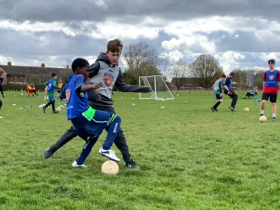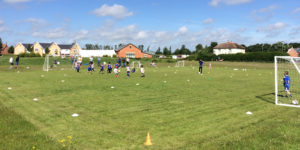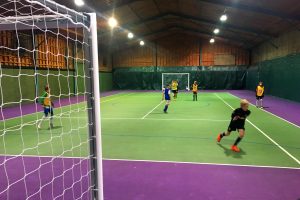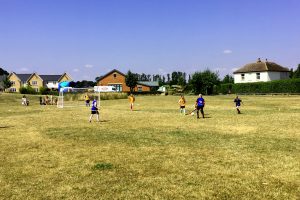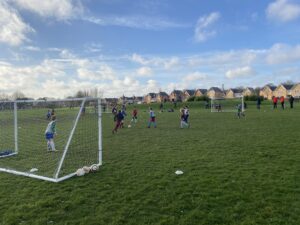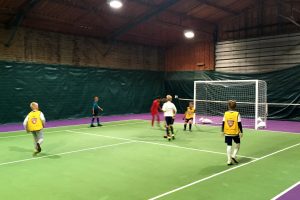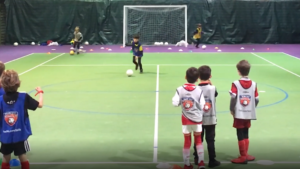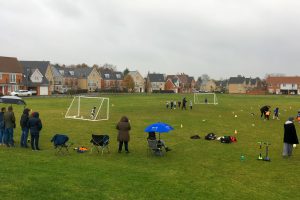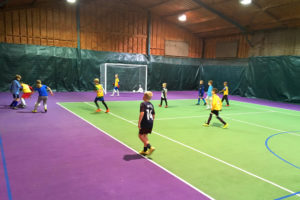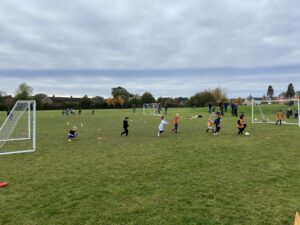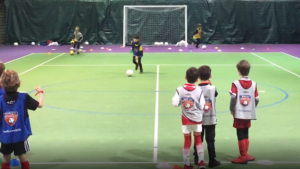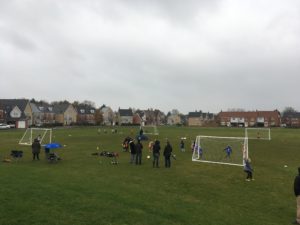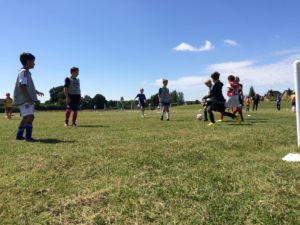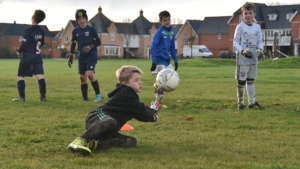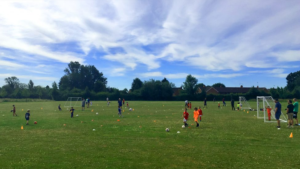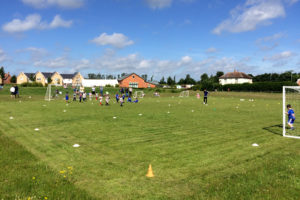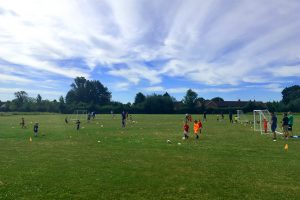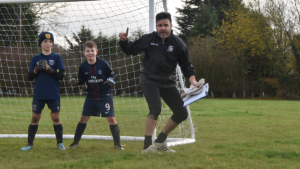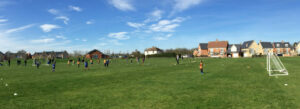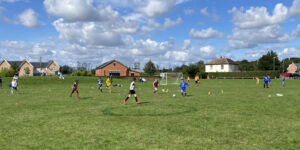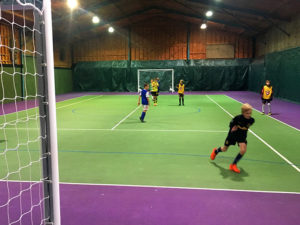With the advent of an updated and re-vamped Level One Coaching Course, The Football Association’s National Game division gave the opportunity for a number of FA staff, alongside members of our Partners, to attend the first ever FA Club Coach course. Not wishing to miss out on an opportunity for personal development – and not to mention a bit more football while we wait for the season to start – TheFA.com’s Jamie Bradbury joined fourteen others in London’s Regents Park for two days of fun…
I’ve played football regularly – at least twice a week – since I was at school, so the game comes as second nature to me (even though I still can’t trap a bag of cement). I have been on the receiving end of various training and coaching methods at most levels of the game so I felt it was about time to get myself a piece of paper that would give me the confidence and authority to begin to hand down my, ahem, ‘experience’ to others.
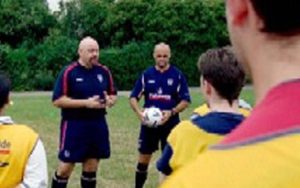 I signed up to the new FA Club Coach programme. Arriving in the centre of a fairly empty Regents Park – it had only just past 9am, and it was a Saturday after all – I gathered with a group of familiar and not so familiar faces by the changing rooms in anticipation of what was described by course organiser Les Howie as ‘Practical Games’.
I signed up to the new FA Club Coach programme. Arriving in the centre of a fairly empty Regents Park – it had only just past 9am, and it was a Saturday after all – I gathered with a group of familiar and not so familiar faces by the changing rooms in anticipation of what was described by course organiser Les Howie as ‘Practical Games’.
What surprised me most was that many of the people there had never played football before, but wanted to get actively involved in the game. We would later find out that this was the ideal vehicle to drive them there.
We moved to our training area, almost in the shadow of London Zoo, and got started on the 23 games especially designed for the course. We had already learned that we begin to lose our flexibility at the age of ten (part the Child Protection element we went through the previous Monday), so the first five games were warm ups and are ideal for kids up to the age of about 14 without the need for stretching.
Games such as Moves in Twos, Duos and Throw, Head, Catch (I bet you can guess what is involved in that?) got us all thoroughly prepared as we began to self-baste in the increasing heat of the July morning. Les (UEFA ‘B’ Licence holder) and his coaching team of John Bayer (Also a UEFA ‘B’ man) and Richard Allen (UEFA ‘A) took us through the remaining 18 games ‘Letting the Game be the Teacher’ in accordance with the course philosophy.
We were to experience each session throughout day one so that on day two, we could step into Les, John and Richard’s trainers to run a game each ourselves. The games, continuing with the theme of bizarre names, are aimed at various age groups, some more for the younger kids while others are suitable for everyone – including adults.
I myself was looking forward to the game ‘Find a Friend’ but for some reason I couldn’t get the hang of it, others preferred ‘Changing Ends’ while nobody – save maybe Mr Howie – knew what ‘Three Pots In’ was all about. But the session popped out from behind its odd monicker late in the afternoon to reveal itself as the schoolboy’s own favourite ‘World Cup’, the one-on-one contest with a third player in goal, swapping around after a pre-determined number of goals is scored, hence, I suppose ‘Three Pots In’…
Day one finished in a markedly busier Regents Park and we were all allowed to go home to have a sleep – or the more conscientious of us would watch their lunchtime acquisition, The FA Club Coach video, to get some further guidance on the games we’d been given to organise.
My game was ‘Shooting Alley’ which is one of the latter sessions in the course so I was able to go through most of the other games getting tired in the even hotter sun, whilst everyone took turns to coach the Sunday schedule with confidence. When my turn came it was easier than I thought it would be.
I set up two ‘Alleys’ using cones with a starting point either end, and a goal halfway down each alley. Two players ‘volunteered’ to go in goal and the remainder separated into four equal groups and advance to each starting point. Players would then take it in turns to receive a pass and try and score past the ‘keepers.
My job was to offer encouragement and the odd tip about surprising the keeper with early shots or beat him with a bit of skill. And this was the fundamental philosophy of the course. The Club Coach is there to set up the situation, tell the participants the aim of the exercise and encourage them through it.
Anybody can do this, and everyone should, no matter what their on the field ability is and whether they want to be a ‘real’ football coach or not. For me it was the kick-start my coaching ambitions needed, now I want more of the same. I’m going for my Level Two certificate when I can, but it’s not essential – some may not want to coach, but if they wish to progress, other courses are available. I thoroughly enjoyed my two days in Regents Park, and I recommend it to everyone.
As well as learning the basics of being a coach, I met some nice people and I even came away with a healthy, glowing sun tan, I don’t even need a holiday now!
If you want to become a Club Coach, you can contact your local County FA who’ll be happy to help you and give you information on the Child Protection, Emergency Aid and Soccer Parent sections of the course. As well as the two day coaching sessions, you’ll learn emergency aid and child protection which are vital components to being confident and competent around children and adults of any age.



